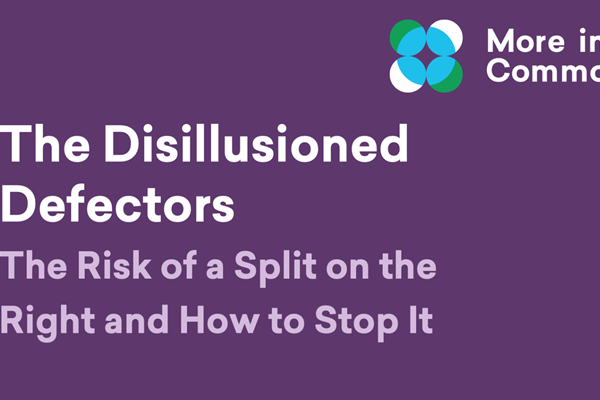Over the past year, More in Common and Kantar Public have surveyed over 10,000 people, to try and better understand what the British public thinks about issues of inequality, fairness and the gap between the haves and have nots. This longitudinal lens has allowed us to see the impact of the rising cost of living, from the beginnings of the crisis in Britain last winter to the present day, and how it has imprinted on public attitudes.
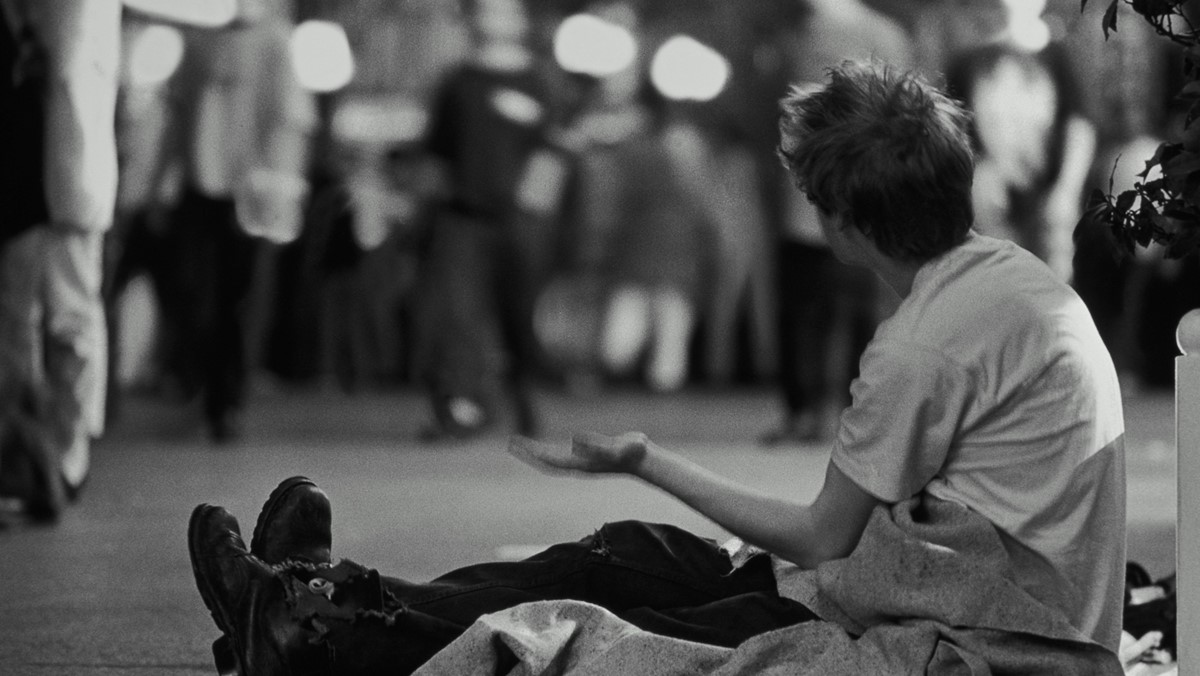
Since June 2021, Kantar Public and More in Common have tracked attitudes to fairness and inequality in Britain. This longitudinal lens has allowed us to see the impact of the rising cost of living, from the beginnings of the crisis in Britain last winter to the present day, and how it has imprinted on public attitudes.
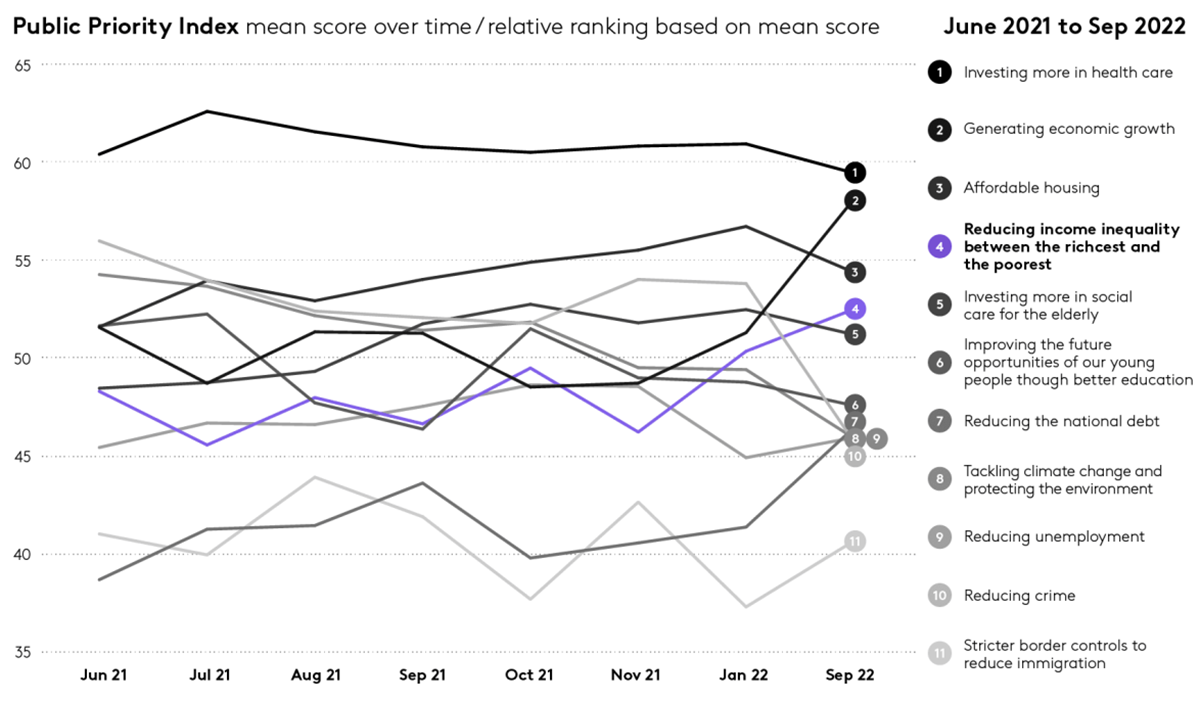
Our findings include how despite large majorities saying Britain is an unequal society and more should be done to fix it, it is not a top priority for most Britons. When asked to rank issues of concern, ‘reducing income inequality between the richest and the poorest’ consistently ranks lower than other policy issues.
Although it has clearly risen in relative importance since the onset of the cost of living crisis, this rise is far less than that of 'generating economic growth' - which moved from 7th top issue in November, to 4th in January, to 2nd in September - suggesting that the Truss government's approach was in line with public opinion, even if perceptions were subsequently negative due to its execution.
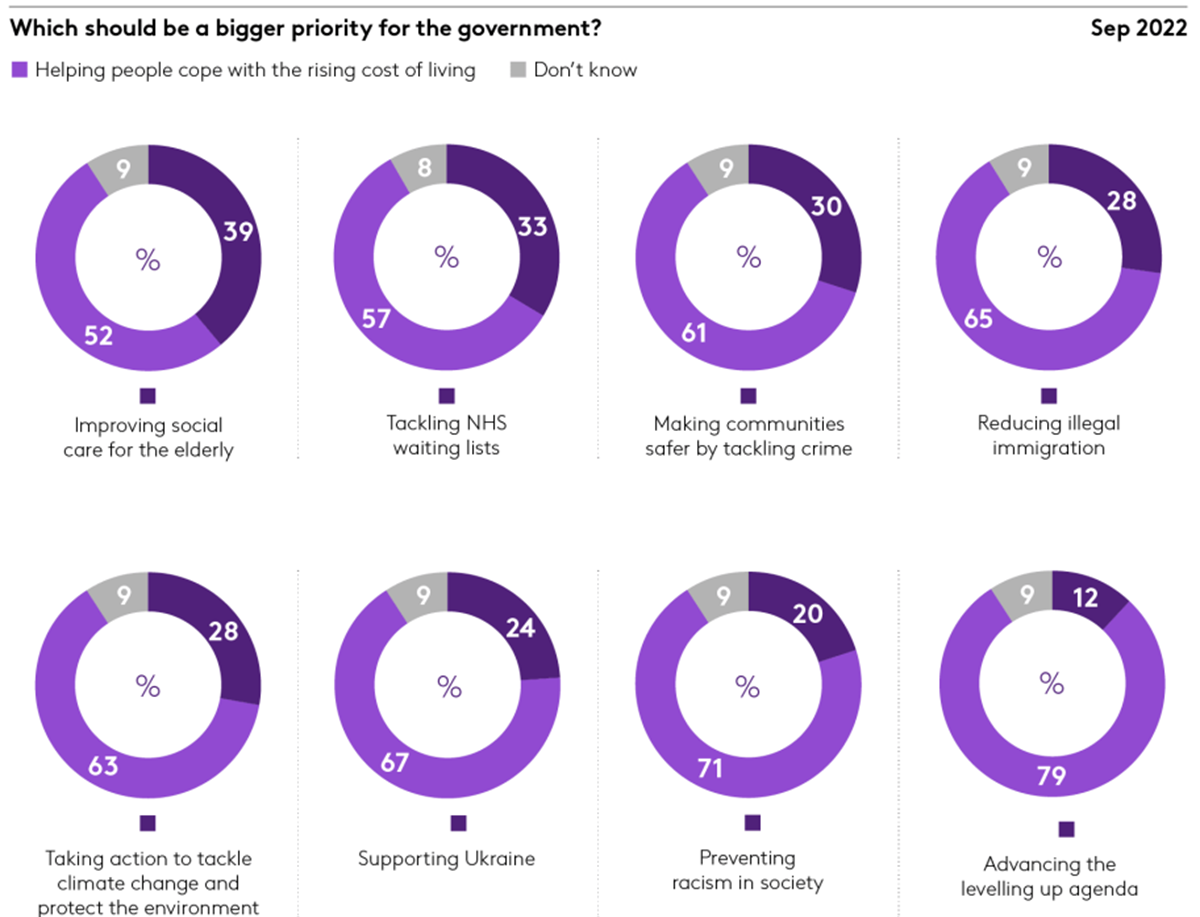
A key finding of the research is how cost of living has grown in importance over time, from being one of several important issues, to the dominant one in the minds of the public. Given a head-to-head choice, cost of living is ranked as a greater priority for the government than every other policy area, with this has changing significantly since the start of our tracker. Where previously the 18-24 group said tackling racism and climate change were a bigger priority, and those over 45 saying the same for social care, the NHS, and suppoting Ukraine, now there is a striking uniformity - all groups now prioritising the cost of living.
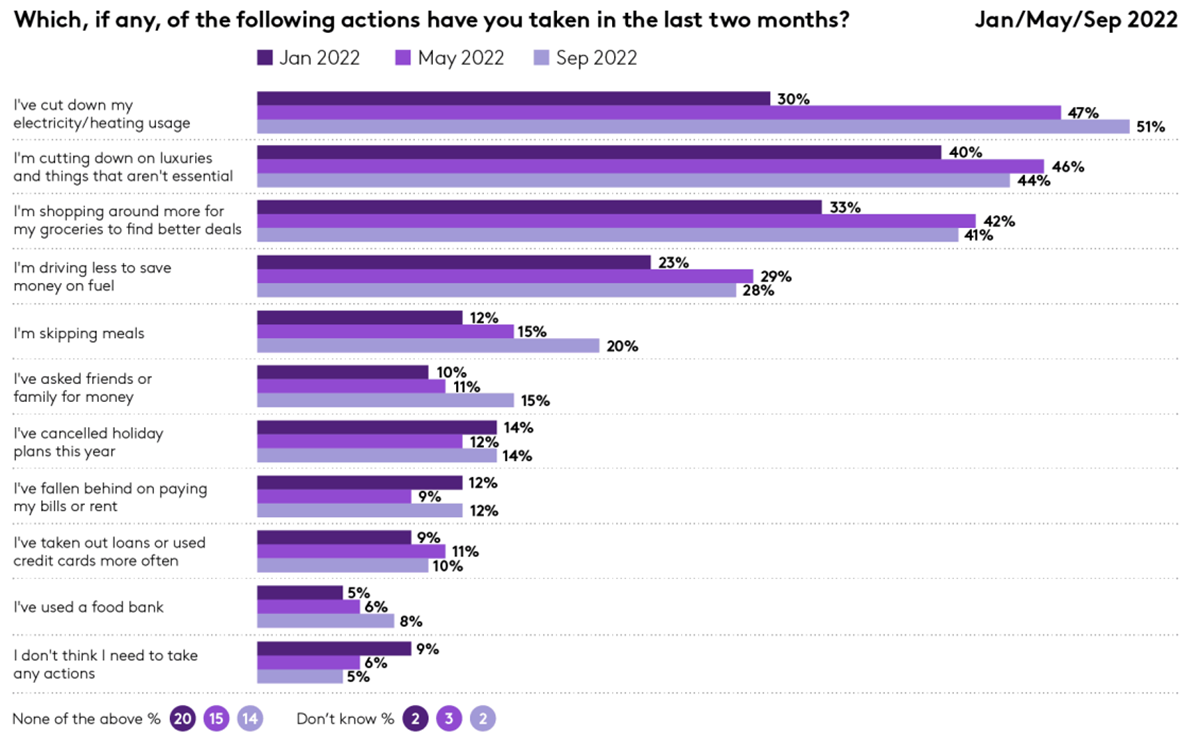
This shift in attitudes can be explained through looking at the actions people have been taking.
We have found that only 15% of the population were not having to make lifestyle changes to cope with the rising cost of living. Since January, the number of people saying they are cutting down on their electricity and heating has risen from 30% to 51%, and more than four in ten say that they are cutting down on non-essentials. This is reinforced in our regular focus groups, participants explaining that even if they aren’t ‘choosing between heating or eating’, they have had to cut out all the things that make life fun: meals out, holidays, activities with the kids. As a result many feel they simply ‘live to work’ and ‘work to live’.
And some are feeling the effects even more painfully, the number having to use food banks has risen to nearly one in ten, with similar numbers saying they have had to take out new credit cards and who have fallen behind on rent. Most starkly, one in five now say that they are skipping meals because of the cost-of-living crisis, a number that rises to 29% among 18–34-year-olds. That in 21st century Britain almost a third of young adults now say they are skipping meals to cope with rising prices underlines the severe nature of the crisis.
